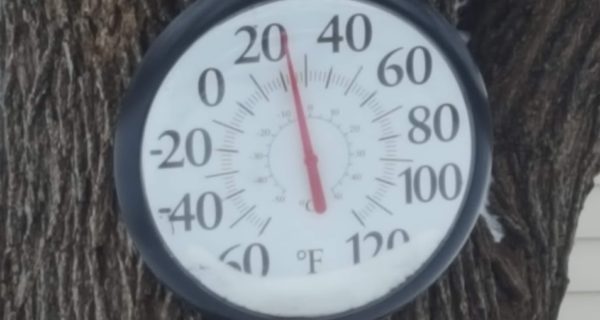 With temperatures expected to rise into the 90’s for the first time this year, the Iowa Department of Public Health (IDPH) reminds Iowans to keep health in mind during the hot weather.
With temperatures expected to rise into the 90’s for the first time this year, the Iowa Department of Public Health (IDPH) reminds Iowans to keep health in mind during the hot weather.
IDPH Medical Director, Dr. Patricia Quinlisk, says people suffer heat-related illness when the body’s temperature control system is overloaded. She says the body normally cools itself by sweating, but under some conditions, sweating just isn’t enough. Quinlisk says although people with cardiac and other medical problems are especially at risk, even young and healthy individuals can have a heat-related illness if they are very active during hot weather or the heat index is very high.
To protect your health when temperatures and humidity are high, remember to keep cool and use common sense. The following tips are important:
- Increase fluid intake, regardless of your activity level. The best way to tell you are well-hydrated is if your urine is light yellow. If it gets dark, stop and rehydrate by drinking water immediately.
- If experiencing a lot of sweating, replace salt and minerals by eating foods like bananas and salty crackers, or drink rehydrating beverages that contain salts such as sports drinks and special rehydration fluids.
- Choose lightweight, light-colored, loose-fitting clothing and wear sunscreen.
- Wear hats that shade your face such as sun hats, visors, etc.
- Keep in the shade or air conditioned areas as much as possible.
- Work slowly if you are not used to working or exercising in heat and humidity. Stop immediately if you get dizzy, nauseated, or feel weak. Go into an air conditioned space and drink cool liquids.
- Use a buddy system. Watch others for heat-induced illness, since some people may not realize that they are suffering heat-related illnesses, and can become confused or lose consciousness.
As Iowans enjoy more outdoor recreational opportunities and events, it’s important to remember some basic summer safety guidelines, which can be summarized with the word ‘SHADE’:
- S – Sunscreen. Put on sunscreen with a sun protective factor (SPF) of 15 or higher and reapply throughout the day, especially if swimming or sweating.
- H – Heat safety. Drink lots of water and other non-alcoholic, sugar-free fluids; wear lightweight, loose-fitting clothing when outdoors, especially when active; and when temperatures soar, stay in the shade or air conditioning as much as possible.
- A – Animal contact. Remember to wash your hands after touching animals at places like petting zoos or county fairs. Avoid stray and wild animals; they may carry diseases like rabies.
- D – DEET. To prevent being bitten by ticks and mosquitoes that can carry diseases like West Nile virus and Lyme disease, use insect repellent with DEET (follow the label directions when using, especially on children).
- E – Eating outdoors. Grill all meats until thoroughly cooked and always keep cold foods cold and hot foods hot.
For more information about hot weather health, visit www.cdc.gov/Features/ExtremeHeat/.











